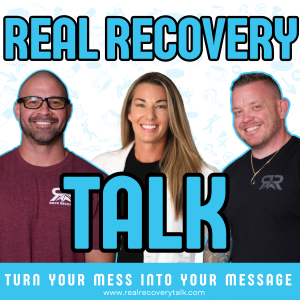
57 - The Importance or Exercise When Getting Clean and Sober
 2019-03-07
2019-03-07
Getting clean and sober can be stressful. We try to do everything possible to help people going through recovery deal with stress. It's scientifically proven that exercise will help reduce stress levels. This is why we can't emphasize the importance of exercise enough in the process of getting clean and sober.
Today’s episode is about exercise and why it is important to incorporate into your journey. Tom and Ben will be discussing this important topic along with the benefits of exercising throughout the recovery process and how exercise can affect your overall physical and mental well being. It can even have an effect on heart health and inflammatory issues.
Show Notes
[02:23] Stress reduction. Exercise is a natural stress reducer. It naturally correlates with the chemicals in your brain. It also gives you an opportunity to take your mind off of whatever you've been thinking about for the day. [03:42] Getting clean and sober can be stressful. There are a lot of things that you aren't used to doing that you now have to do while you're sober. [04:20] There is even research out there that shows stress can cause heart and inflammatory issues. [04:50] Exercise also incorporates into time management. Going to the gym right after work gives you an opportunity to step away from the stressors of the day. [05:46] If you exercise, you get better sleep. Most people in recovery are prescribed some type of sleep aid. It's hard to fall asleep when you first begin recovery. [06:52] It's extremely beneficial to wean off of the sleep meds, and exercise can help you do this. [09:57] Seroquel is an antipsychotic used for sleep. It makes you tired and makes you sleep. Tom became dependent on it. [11:29] Tom has to do something exercise-related during the day even if it's just going for some walks. It definitely helps him sleep. [12:15] In Ben's opinion, sleep medication helps maintain the addicts behavior and mentality. [13:11] While we're sleeping our bodies rejuvenate and repair themselves. [13:51] Improves mood. Exercising actually improves your mood. Exercise helps with the depression and anxiety that people in recovery frequently have. [15:45] We just built a gym and run our clients through a workout routine. We ask them to pay attention to their mood before and after the exercise. We frequently see people walk out of the exercise session with a smile on their face. [17:32] Opiates release endorphins. A runner's high is similar to the endorphins from opiates. It's the same chemicals on the brain. [19:48] Most people who get regular exercise aren't depressed. [20:10] CrossFit or something with a community workout gives people a sense of accomplishment. [21:15] We find exercises that we can modify for all of our clients. [22:06] Increase of energy. Energy capital. Even though exercising expends energy, by exercising you end up with more energy throughout the day. [24:05] Coffee and energy drinks are not the only way to energize. [25:26] If you work out you sleep better, if you sleep better you have more energy. It all comes full circle. [26:01] Exercise gives you a stronger immune system. It's important to have a strong immune system during recovery, because you don't want to get sick. [27:20] Exercise can help push out the last of the detox process. [28:49] Pot is fat soluble and can store in your fat cells. [30:07] Exercising as a whole will help with relapse prevention. [30:24] It's a challenge, it gives you purpose, it's something you enjoy, you sleep better and feel better. [30:59] Also add good nutrition and have a sense of community or a 12-step program, and you will be setting yourself up for success. [31:44] Tom just competed in a US powerlifting competition. [32:29] A big part of recovery is fellowship. [35:12] We have seen exercise work time and time again. It helps with mood and everything else. [35:47] This is why we incorporate exercise into our programs. We give people the tools they need and coach them through the workouts.Links and Resources:
Ep. 27 – Is Steroid Use in Recovery Considered a Relapse?More Episodes
 2020-12-31
2020-12-31
 2020-12-17
2020-12-17
Create your
podcast in
minutes
- Full-featured podcast site
- Unlimited storage and bandwidth
- Comprehensive podcast stats
- Distribute to Apple Podcasts, Spotify, and more
- Make money with your podcast
It is Free
- Privacy Policy
- Cookie Policy
- Terms of Use
- Consent Preferences
- Copyright © 2015-2024 Podbean.com




